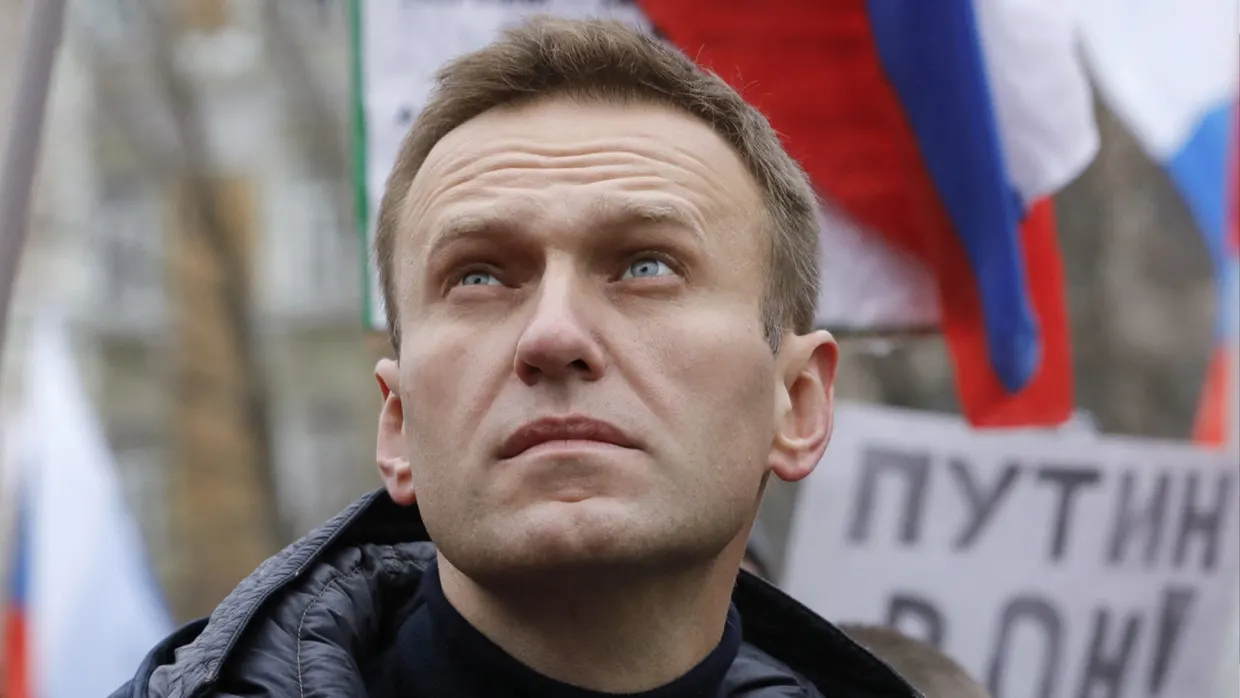Column John Laughland
Alexei Navalny - een analyse van John Laughland (FVD)

When the Nord Stream pipelines were blown up in September 2022, the media rushed to say that Russia did it. We now know that the Americans did it, attacking their main European ally, Germany, and with it, the whole of Europe.
When Alexei Navalny’s death was announced on 16 February, Western media immediately said it was a political assassination (something even the most virulent Western governments have not maintained). But how can we know with certainty what happened in a prison cell somewhere in Siberia, when we hardly even know which prison Navalny was in?
Will we discover in a year or so that this is untrue, as we did with Nord Stream (although some of us knew the truth immediately)? Certainly, many untrue things have been said about Navalny since he rose to prominence about 15 years ago.
It was alleged, for instance, that he had been poisoned with Novichok in an attempted assassination in 2020. Yet this was obvious nonsense. Two years previously, two Russians in Britain had allegedly been targeted with the same Novichok in Salisbury. The UK government peddled the line that Russia had used a secret chemical weapon to try to murder Sergei Skripal, an MI6 agent and Russian traitor who had done time in prison and then been exchanged for other spies many years previously.
The Skripal story itself was impossible to believe. However if one did hold that the Russian plot to use a secret weapon had been uncovered and had failed – Skripal and his daughter did not die, they have been since whisked away from public view by the British secret services and nobody knows where they are now - then it is literally impossible to claim that the Russians would try the same failed tactic again, two years later, against an even more famous opponent, Navalny.
In any case, when Navalny fell ill on a domestic flight in Russia, the plane made an emergency landing and Navalny was rushed to hospital. He was treated there before being sent to a hospital in Germany on his wife’s request. Is this what you do when you are trying to kill someone? If Navalny had had an illegal chemical weapon in his blood, why would the Russians send him to Germany where it would be discovered?
Other untruths of a similar nature have circulated in the know-all Western media – media which rush to embrace conspiracy theories when they support their chosen narrative, but which dismiss them as nutty and even dangerous when they do not. The more gruesome these stories, the better – whether it is the alleged but unproven murder of Alexander Litvinenko in London with radioactive material, or the absurd fantasy that Viktor Yushchenko was poisoned with dioxin in 2004. Russian assassins, it seems, never use guns or knives, preferring instead to use toxins which leave plenty of trace and often do not work. If they tried less baroque ways to eliminate their opponents, that would not fit in with the James Bond / SMERSH narrative which Western elites have imbibed with their mother’s milk.
The best known case, elevated to the status of law in the United States, is the death in a Russian prison of Sergei Magnitsky in 2009. It was immediately alleged by his associate Bill Browder that he had been murdered for denouncing corruption. But as the film maker Andrei Nekrasov and the German weekly Der Spiegel have shown conclusively – Nekrasov’s superb documentary, ‘Magnitsky: Behind the Scenes,’ has once again been taken down from Youtube - not one element of this story stands up to scrutiny. The European Court of Human Rights, for what it is worth, agrees. It ruled in 2019 that Magnitsky’s arrest had been perfectly reasonable – far from denouncing corruption, he was himself accused of it – and that there was no evidence to say he was murdered.
Another untruth told about Navalny was that he was a or the leader of the Russian opposition. Navalny was not the leader of anything. His finest hour came in 2013 when he garnered 670,000 votes in a Moscow mayoral election. He never had any national party structure or any national support outside the liberal capital city. Just over half a million votes in a country of 140 million needs to be against the 12 million votes which went in the 2012 presidential election to the Communist Party candidate, 6 million to the ephemeral liberal candidate, Mikhail Prokhorov, and 4.5 million to the nationalist, Vladimir Zhirinovsky.
Finally, his troubles with the law were not initially political. His initial convictions date from a corruption case brought against him and his brother by the French cosmetics company Yves Rocher in 2012. He repeatedly broke his travel ban and this led to house arrest. Later, after his stay in a Berlin hospital, he was convicted for contempt of court for having refused to obey various court orders.
The notion that Navalny had support in Russia which only repression stymied is not credible. In 2021 the Levada Centre found that he had a 62% disapproval rating, up from 50% the previous year, with approval ratings of 20% in 2020 and 14% in 2021.
Instead, Navalny prefigured Vladimir Zelensky. A creation of his American advisors and a minor corrupt figure, Navalny’s initial plan, when he first came to prominence in the second decade of the 21st century, was to unite nationalists and liberals against Putin. He tried to appeal to the extreme right, for instance in this video to trail a party called ‘Narod’ (People) for National Russian Liberation Movement which describes Muslims as cockroaches and advocates murdering them. His earliest foray into politics, with Maria Gaidar, daughter of a prominent liberal former Prime Minister, was supported financially by the USA’s regime change operation, the National Endowment for Democracy, as Wikileaks revealed in 2006.
No doubt conditions in Siberian prisons are not conducive to good health. But Navalny himself was a sick man. The events of 2020, when he collapsed on a plane and his life was then saved by Russian doctors, were an indication of severe problems with his blood sugar. If he had been poisoned, he would have died. It is therefore perfectly feasible that his death is innocuous – but of course that truth, if it is truth, is far less interesting than another grisly tale about Dr. Evil in the Kremlin.
Cui bono? Even if you believe that Navalny was a political force who threatened Putin, his allegedly political imprisonment had solved the supposed problem. What is the possible motive for taking the extra step of murdering him?
On the contrary Russia and Putin have just had their biggest publicity coup for years, with the Tucker Carlson interview having been viewed by hundreds of millions of viewers. His shorts about the Moscow Metro and the cost of living in Russia are also doing the rounds. For Navalny to die in the very same week is surely very bad publicity for the Kremlin – especially when, by an astonishing coincidence, his wife Yulia is today attending the Munich Security Conference together with the Ukrainian president and the collective West.
Come to think of it, maybe there is a conspiracy theory worth pondering here…




